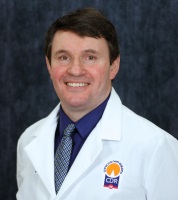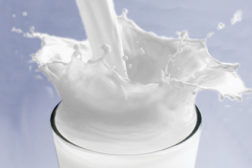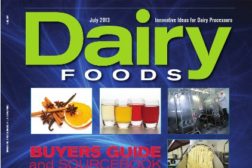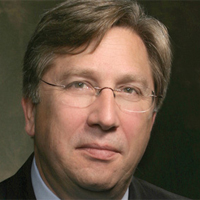Dairy Foods Columnists
Dairy slips through the looking glass
In the truly bizarre world of international trade regulations and negotiations, U.S. dairy processors could be forbidden to describe their products as “American cheese.”
August 21, 2013
The cheese of the future
Cheese manufacturers and their suppliers will develop more pronounced flavors. They’ll use waterless mozzarella cookers and make cheeses entirely in their retail containers.
August 18, 2013
Dairy innovations
Dairy and cultures make a powerful beverage duo
Concentrated milk or whey protein ingredients are often added to cultured dairy beverages to boost the protein level and to contribute to viscosity and mouthfeel.
August 18, 2013
Prebiotics promote the growth of probiotics
Prebiotics are nondigestible dietary fibers that promote the growth and activity of probiotics. That much we do know. But dieticians, processors and consumers have so much more to learn.
August 17, 2013
Obituary
Henry Randolph, an expert in milk testing and food safety, has passed away at age 78
Mr. Randolph was the President/Founder of Randolph Associates, Inc., established in 1977. He was a renowned Food Scientist among the Food and Dairy Industry, affectionately known as the "Milk Doctor."
July 31, 2013
A minute with the publisher
The Dairy Foods Buyers Guide is a source of equipment, ingredients for dairy processors
This issue of Dairy Foods is a source of companies that provide products and services to your dairy processing operation.
July 19, 2013
Fixing broken milk powder pricing
An industry group is at work to fix a broken milk powder price-discovery process that is resulting in damaging volatility, lost competitiveness and eroding global market share.
June 13, 2013
Transportation’s role in food safety
FSMA has shifted the focus from responding to contamination to preventing it. This includes transportation, in addition to processing, packaging, sales and consumption.
May 17, 2013
Stay ahead of the curve. Unlock a dose of cutting-edge insights.
Receive our premium content directly to your inbox.
SIGN-UP TODAYCopyright ©2024. All Rights Reserved BNP Media.
Design, CMS, Hosting & Web Development :: ePublishing















